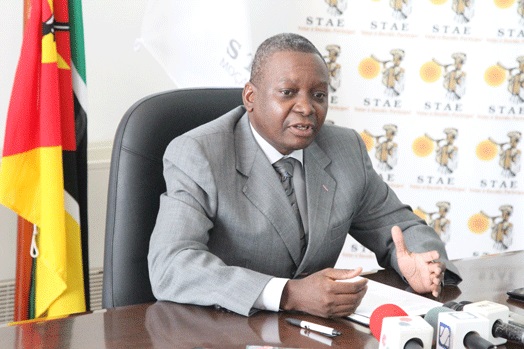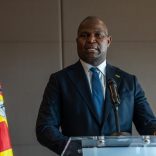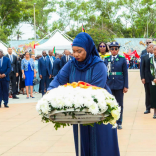Mozambique: President calls on FADM 'to incinerate' terrorism in Cabo Delgado
Mozambique: General director of STAE Felisberto Naife resigns – AIM

File photo: Noticias
Felisberto Naife, the general director of Mozambique’s Electoral Administration Technical Secretariat (STAE) has resigned after 15 years at the helm of the Mozambican electoral apparatus.
There must now be a public tender to select a new director general. According to a report in Monday’s issue of the Maputo daily “Noticias”, while the tender documents are being prepared STAE will operate under the leadership of the two assistant general directors, who were appointed to those positions by the two largest political parties, the ruling Frelimo Party and the main opposition force, Renamo.
That is precisely the problem: although it is theoretically independent, STAE is effectively in the hands of political parties.
STAE is the executive body of the National Elections Commission (CNE). The CNE takes the main decisions and STAE, represented in every Mozambican district during electoral periods, must implement them. In particular, STAE must organize the nuts and bolts of voter registration and must run all the many thousands of polling stations needed on election day.
Under the CNE are provincial and district election commissions, each of which has a provincial or district branch of STAE. All the election commissions and all the STAE branches are dominated by the political parties (Frelimo, Renamo and the second opposition party, the Mozambique Democratic Movement, MDM).
The CNE is a top-heavy, unprofessional and deeply politicised body. Thanks to a law passed in February 2014, under pressure from Renamo, it has 17 members – five from Frelimo, four from Renamo, one from the MDM, and seven from civil society.
But the civil society members are not genuinely chosen by civil society. Instead, names are put forward to an Assembly Ad-Hoc Commission. This chooses a short list, which the Assembly plenary then votes on. Thus the names from civil society organisations are filtered through the three parliamentary political parties, and, with a majority on the Ad-Hoc Commission and in the plenary, Frelimo has a clear veto.
The CNE has support bodies in the shape of the provincial and district election commissions, formed in much the same way. They each have three members appointed by Frelimo, two from Renamo, one from the MDM and nine from civil society. Again, the civil society members are filtered through the political parties.
The same politicization occurs with STAE, at national, provincial and district levels. This means that there are literally thousands of political appointees inside the electoral bodies, which clearly compromises their independence.
Opposition parties always claim that Mozambican elections are fraudulent and have frequently claimed that Naife himself was working for Frelimo. But Naife was working with electoral legislation, largely drafted under pressure from Renamo, which put the political parties in the driving seat and marginalized election professionals.
The new STAE general director must begin work almost immediately on preparations for the municipal elections scheduled for October 2023. This includes installing provincial elections commissions and provincial branches of STAE, to be followed, within a month, by the establishment of the commissions in those districts that contain municipalities.
The initial estimate is that the municipal elections will cost 9.7 billion meticais (about 151 million US dollars, at the current exchange rate). Of this sum, 3.2 billion meticais will be spent this year on preparations, and the rest in 2023, including the voting itself and the proclamation of results.
Changing the law, so as to make the electoral bodies less cumbersome and less politicised depends on the country’s parliament, the Assembly of the Republic, and so far there is no indication that any of the parliamentary parties intend to submit amendments to the electoral laws.













Leave a Reply
Be the First to Comment!
You must be logged in to post a comment.
You must be logged in to post a comment.